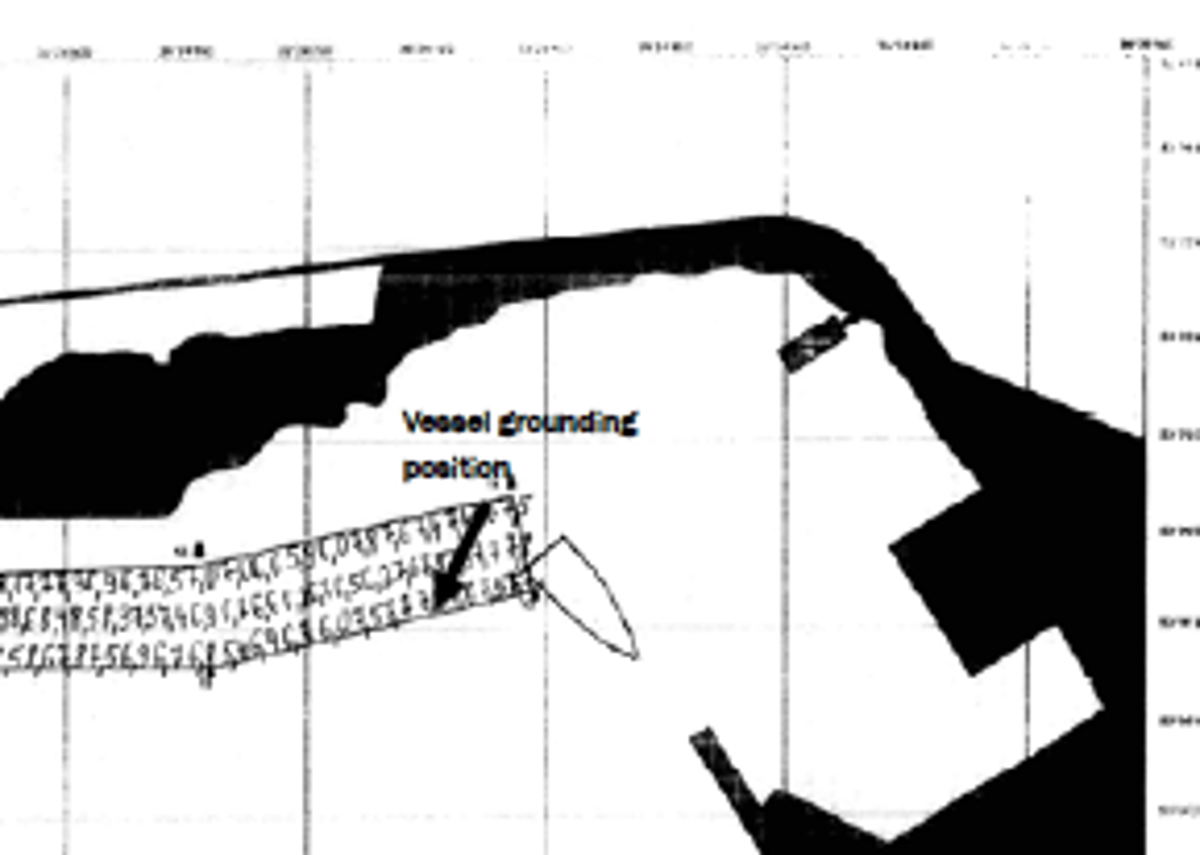Vessel ran aground following error on chart
- Safety Flash
- Published on 9 May 2018
- Generated on 20 February 2026
- IMCA SF 10/18
- 2 minute read
Jump to:
A vessel ran aground whilst leaving a channel on the approach to a port.
What happened?
The vessel was making around 4.5 knots, and grounded by the stern in the right side of the channel. At the moment of grounding, the echo sounder was indicating a depth of 3.5 metres. Whilst leaving the channel, the vessel caught a small sand hill that had not been charted.

What went wrong? What were the causes?
During the investigation process, the channel navigational chart was carefully checked and errors were found. There were also indications that a buoy had shifted 5m due to the length of the chain anchoring the buoy.
What lessons were learned?
- Closer control of the water depth indication and echo-sounder information was required. Officers need to be more aware of the location and accuracy of the vessel’s fitted echo-sounder and its limitations in shallow water.
- Suspected errors in navigational marks should be reported to Port Authorities, and any changes reported should be marked on charts.
What actions were taken?
- Management were to approach the appropriate authorities with the findings from the company investigation and communicate updates to relevant vessels. The responsible authorities were to update the channel navigation chart and consider adjusting the length of the chain on the buoy;
- Ensure that deck officers are fully aware of the importance of constantly monitoring the vessel’s draft and echo sounder whilst passing through a channel;
- Passage planning should be from berth to berth. When making any passage plan, it is of absolute necessity to ensure there is safe navigable water throughout the route to be taken. Any areas of concern should be indicated on the chart so that all officers of the watch are aware of any potential issues.
Two tugs were provided to recover the vessel from the grounding. The Captain and Chief Engineer conducted a visual inspection of the hull and several internal compartments to confirm that the vessel’s seaworthiness was not affected. A diving inspection was carried out and confirmed that around two square metres of coating were affected, but there was no severe damage to the hull.
Related Safety Flashes
-
IMCA SF 13/15
21 September 2015
IMCA Safety Flashes summarise key safety matters and incidents, allowing lessons to be more easily learnt for the benefit of the entire offshore industry.
The effectiveness of the IMCA Safety Flash system depends on the industry sharing information and so avoiding repeat incidents. Incidents are classified according to IOGP's Life Saving Rules.
All information is anonymised or sanitised, as appropriate, and warnings for graphic content included where possible.
IMCA makes every effort to ensure both the accuracy and reliability of the information shared, but is not be liable for any guidance and/or recommendation and/or statement herein contained.
The information contained in this document does not fulfil or replace any individual's or Member's legal, regulatory or other duties or obligations in respect of their operations. Individuals and Members remain solely responsible for the safe, lawful and proper conduct of their operations.
Share your safety incidents with IMCA online. Sign-up to receive Safety Flashes straight to your email.